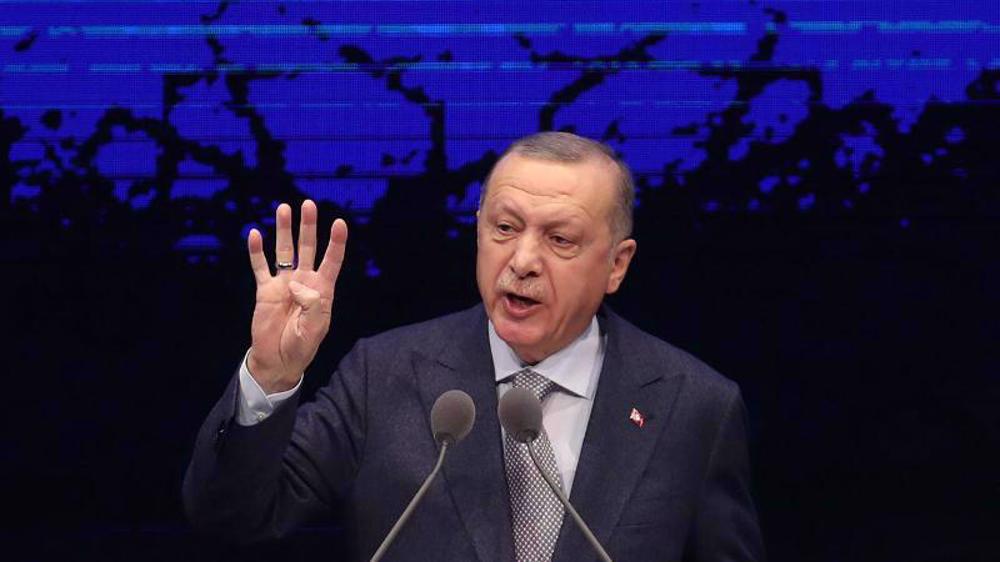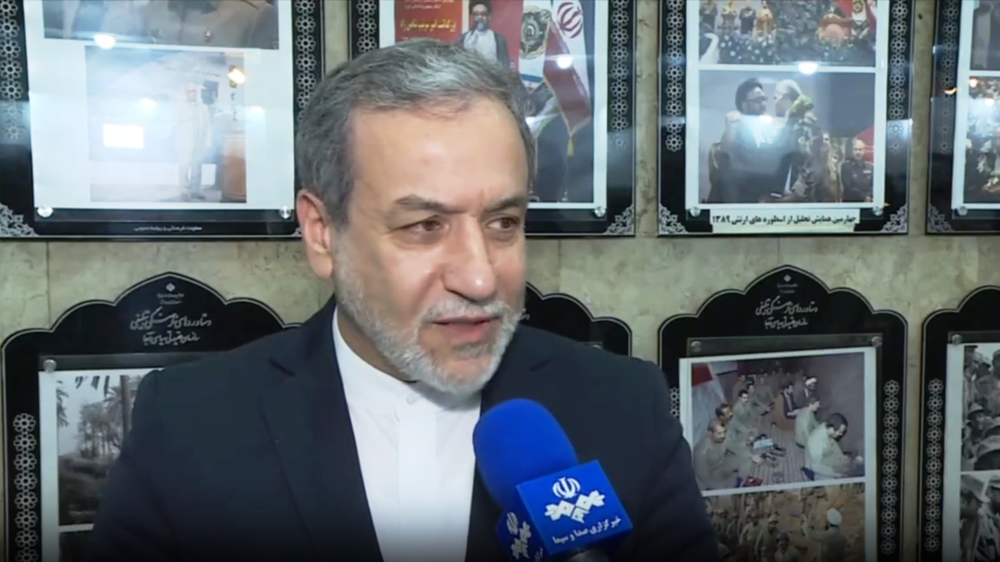Assad knew aligning with pro-Israel Arab rulers would mean betrayal of Palestine
By Omer Khaled
Doomsayers are imprudently speculating that the resistance axis has been crushed in Syria with the ouster of Bashar al-Assad and the rise of West-backed militant groups.
Nothing could be further from the truth.
The resistance axis has in fact neutralized a significant strategic threat which will become evident over time. This axis remains undefeatable and continues to be a formidable force in the region.
The strategic importance of Syria to the resistance axis in its protracted struggle against Israeli occupation and Western imperialism cannot be overstated. Syria has been a key player in this fight.
For decades, Syria served as a crucial logistical route for supplying weapons to resistance groups in Lebanon and Palestine, steadfastly supporting them despite crippling sanctions and terrorism.
This unwavering commitment to the resistance front with the goal of the liberation of occupied Palestinian territories from Zionist occupation ultimately cost Assad his long-standing hold on power.
Assad’s removal from power had for long figured high on the agenda of the Zionist regime and its Western allies. While the resistance axis and the Assad government in Damascus were focused on confronting Israeli occupation, some Arab states moved to normalize ties with the very regime.
The farce of normalization with the Israeli occupation not only represented a betrayal of the Palestinian cause that the Arab nations claim to support, but also served as a means to settle scores with Assad.
Most of these regimes in the Arab world have for long only offered lip service for the Palestinian cause to avoid being in the crosshairs of the Tel Aviv regime and its patron-in-chief, the United States.
The 1978 Camp David Accords marked the beginning of efforts by some Arab nations to normalize the Israeli occupation of Palestine. This trend continued with the 1993 Oslo Accords, in which the Palestinian Liberation Organization (PLO) formally recognized the illegitimate Zionist entity.
Leader of the Islamic Revolution, Ayatollah Seyyed Ali Khamenei has reaffirmed the resilience of the resistance and said that it is Israel that will see its eradication eventually. pic.twitter.com/DGHdwL2ezr
— Press TV 🔻 (@PressTV) December 17, 2024
Neither of these agreements found support or acceptance among the people of West Asia, including Palestinians. Nevertheless, both deals played a significant role in solidifying the presence of the illegitimate entity on occupied Palestinian land.
The 2020 Abraham Accords, orchestrated by showman-turned-president Donald Trump, marked another major milestone in the campaign to legitimize the illegal occupation of Palestine. Many Arab regimes fell into the vicious trap in exchange for meager economic incentives.
Authoritarian regimes across the Arab world openly competed to normalize relations with the Israeli regime, publicly confirming what had been privately known for decades—their betrayal of Palestine.
This trajectory continued until October 7, 2023, when Operation Al-Aqsa Flood changed everything. This historic event fundamentally altered regional dynamics and shook the very foundation of the Zionist occupation and its Western patrons.
The October 7 operation, launched in response to decades of occupation, oppression, and subjugation, was followed by an all-out genocidal campaign against Palestinians in the besieged Gaza Strip.
In light of the genocidal war crimes perpetrated by the Israeli regime in besieged Gaza—later extended to Lebanon—normalizing relations with the occupation ceased to be seen as a viable course of action.
Even some Western countries publicly condemned the genocidal war crimes, and the International Criminal Court (ICC) was compelled to issue arrest warrants for Israeli war criminals.
Since the outset of the occupation of Palestine and the establishment of the illegitimate apartheid entity on stolen land, the United States has acted as its sword and shield, providing unwavering support to entrench the occupation and enable settler-colonial activities in the occupied territories.
For any country seeking favor with American elites and the privileges that come with it, the formula has been simple and clear: establish ties with the Israeli occupation and turn a blind eye to its atrocities against Palestinians, including women and children.
HTS rule: A new era of uncertainty for Syria after Assad pic.twitter.com/aqnaPF03BM
— Press TV 🔻 (@PressTV) December 14, 2024
This is the primary reason why some Arab and Muslim countries in recent years chose to shake hands stained with the blood of Palestinian children for short-term gains. However, the resistance axis refused to compromise, standing its ground firmly in rejecting the West-sponsored settler-colonial project.
The Israeli-American project employed every tool at its disposal to knock out the resistance axis and coerce countries in West Asia into submission. While many yielded, Syria remained steadfast in its support for the axis, despite suffering in different forms and manifestations.
The occupation of the Syrian Golan Heights and the deep-seated hatred for the Zionist regime among ordinary Syrians made the fight against the occupation an existential priority for the Syrian government.
Thus, ensuring the survival of this "cancerous tumor" required one thing: the removal of Assad in Syria. Any ruling dispensation in Syria that regards the Israeli regime as an enemy would inevitably face unrelenting hostility.
For years, Western powers, backed by the Israeli regime, sought to overthrow the democratically elected Assad government in Damascus, employing sanctions, terrorist groups, and foreign mercenaries as part of their strategy.
After years of crippling and draconian Western sanctions that decimated Syria’s economic infrastructure and plunged its society into poverty, Assad was left with limited choices.
Either he had to fight the armed militants while his army was on the brink of collapse, or he had to accept offers from Arab monarchies to abandon support for the Palestinian cause and embrace Israel.
Assad fully understood what aligning with Arab rulers who colluded with the Americans and Zionists would entail. Such a move would inevitably draw him closer to the Americans and, ultimately, require normalizing ties with Israel. That was the proverbial red line.
Amid this strategic ambiguity, Syria, steadfast in its commitment to the resistance axis, was not offered on a platter to the Zionist enemy, as many mistakenly assume.
Instead, these turn of events have created a new opportunity for the axis to shock the enemy in the future.
Omer Khaled is a Syrian journalist who has covered foreign-backed militancy in the Arab country for many years.
(The views expressed in this article do not necessarily reflect those of Press TV.)
Press TV’s website can also be accessed at the following alternate addresses:







 This makes it easy to access the Press TV website
This makes it easy to access the Press TV website